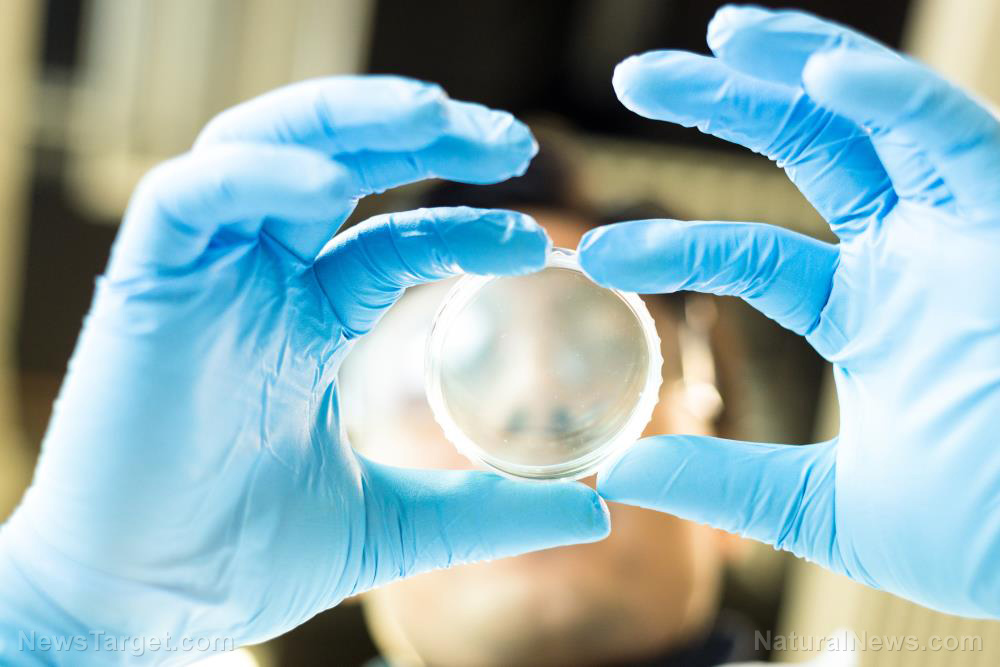Pellets for health: Can beadlets revolutionize nutritional supplements?
05/16/2019 / By Edsel Cook

An increasing number of nutritional supplement products are taking the form of transparent capsules brimming with colorful “beadlets.” Reputed to be as effective as their duller-looking conventional counterparts, the beadlets are intended to catch the eye of potential consumers browsing their stores or social media.
The first company to bank its fortunes on beadlet tech is Ritual. Founded in 2016 and based in Los Angeles, it offers gel capsules that look like glass vials and contain pale beadlets that glitter in the light.
Ritual CEO and founder Kat Schneider said that her objective was to catch people’s interest so that they would talk about the nutrient supplements on social media. Indeed, much of the initial interest in the company came from the Instagram-worthy photos of its products.
The gel capsules are made from transparent but otherwise ordinary gellan gum. Their beadlets are the active ingredients that underwent a drying process to preserve them from the other oilier ingredients.
Other companies followed the lead of Ritual. One competitor, a “personalized nutrition subscription company” called Persona, came up with a breakable gelcap. Its beadlets can be added to water, smoothies, and yogurt for people who might be unable to swallow a capsule. (Related: Supplement with CoQ10 to prevent heart disease.)
The age of the Instagram-worthy nutrient supplement “beadlet” capsule
Nutritional supplement companies do not make beadlet capsules themselves. Instead, they hire contract manufacturing companies like Ion Labs & Ion Fulfillment to produce their products for them.
Ion Labs official Max Timko explained that the trend for beadlets is driven by two things: The beautiful appearance of the product, and the popularity of visual-based social media platforms such as Instagram.
He added that the beadlet capsule has practical benefits. A conventional gel capsule could only have one liquid ingredient per gelcap, but beadlet-based capsules contain several dissimilar liquids.
Furthermore, beadlets make it easier to ensure nutrients intended for the gut are released on time and in the right part of the gastrointestinal tract. But Timko also warned that supplement companies should tell manufacturers ahead of time if they want breakable capsules for their finished product.
“I think it is safe to say the second you open a capsule and interrupt the formulation in its designed delivery form the product itself will not function as designed or intended,” he warned. “Some products will require the capsule to stay together in order to have the intended user experience.”
Some supplement companies ditch the gel capsule and directly offer beadlets
Since its debut, beadlet technology has already been taken to the next step. At least one supplement company ditched the gel capsule and is hawking beadlet-based nutritional supplements.
This personalized nutrition company – the newly founded Rootine – offers color-coded “pellets,” which are beadlets by another name. But instead of being packed inside gelcaps, the tiny supplements are stored in a sachet that will be sent to the doorstep of a consumer.
“We realized that one person might need 580 mg of calcium, and another person might need, say, 585 mg,” explained Rootine founder Dr. Daniel Wallerstorfer. “We tried to figure out what’s the best technology to make it so personalized that we can create any recipe.”
Wallerstorfer didn’t want to use liquids because of their instability. So he chose beadlets as the delivery method for nutritional supplements.
Rootine also bucked the beadlet capsule trend by dropping the gelcap altogether. Wallerstorfer hoped that his company’s different approach would make it stand out among competitors, whom he described as offering consumers a red pill or a green pill.
Sources include:
Tagged Under: beadlets, capsules, gel capsules, gelcaps, Instagram, medical tech, nutrients, pellets, personalized nutrition, pills, prescriptions, Social media, supplements
RECENT NEWS & ARTICLES
COPYRIGHT © 2017 NUTRIENTS NEWS


















